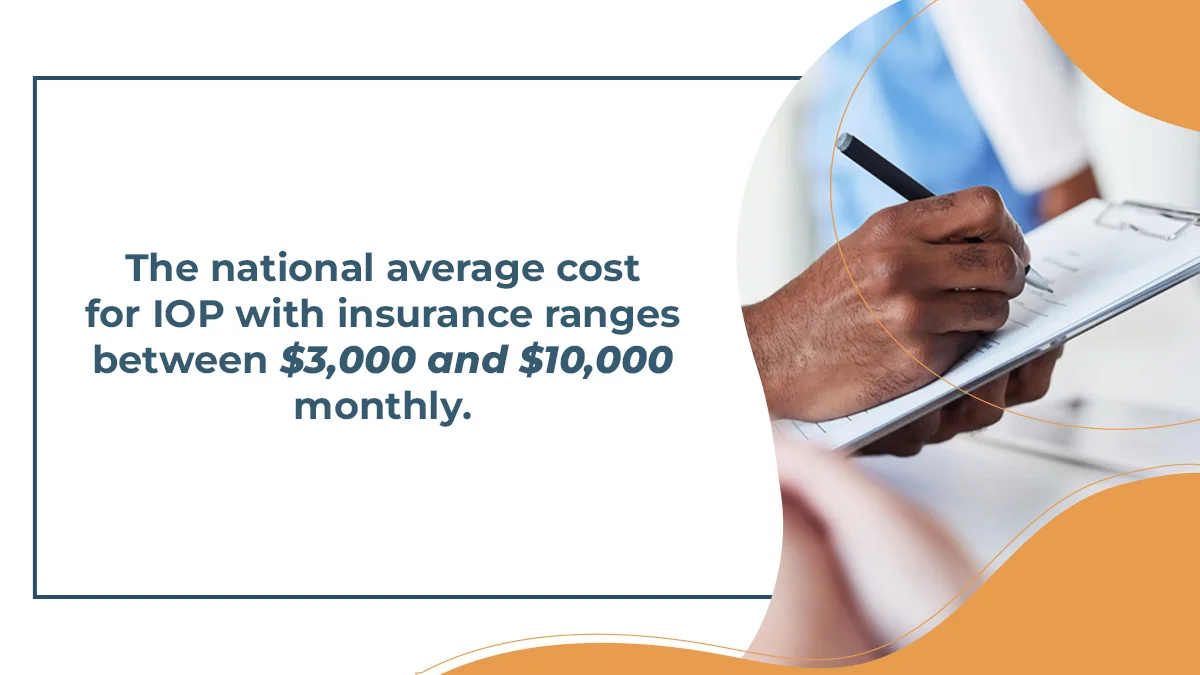
Using Tramadol To Manage Suboxone Withdrawal
Explore the role of tramadol in managing suboxone withdrawal symptoms with The Recovery Team-Newton.

Intensive outpatient programs (IOPs) provide essential support for individuals battling alcohol addiction. They offer structured therapy and counseling while allowing participants to live at home. These programs are designed to be flexible, enabling individuals to maintain work and family responsibilities during recovery. With various services, including individual and group therapy, educational workshops, and family sessions, IOPs address the specific needs of those seeking help.
Intensive outpatient programs (IOPs) offer structured therapy and counseling for individuals battling alcohol addiction. Here’s what you need to know:
The Recovery Team-Newton offers intensive outpatient programs (IOPs) that provide therapy, counseling, and support groups. For more information, call (508) 978-2772.
An intensive outpatient program (IOP) is a treatment option for individuals seeking help with alcohol addiction. It provides structured support and therapy while allowing participants to live at home. IOPs offer flexibility, making it possible to maintain work and family responsibilities during recovery.
IOPs offer many benefits for those dealing with alcohol addiction and substance use disorder. Participants receive comprehensive care without needing to stay in a treatment facility full-time. This program includes therapy sessions, education, and support groups, which can help individuals develop coping skills and prevent relapse. The ability to return home after treatment sessions allows for applying learned strategies in real-life situations.
Intensive outpatient programs provide various services to support recovery from alcohol addiction. These services include individual therapy, where patients can work on personal issues with a counselor.
Group therapy sessions foster peer support and shared experiences. Educational workshops offer information on addiction and recovery strategies. Family therapy sessions may also be included to help repair and strengthen the relationship of family members. These combined services aim to address the physical, emotional, and social aspects of alcohol addiction and substance abuse.
The cost of intensive outpatient programs (IOPs) with insurance varies due to various factors. These include the type of insurance plan, whether the provider is in-network or out-of-network, coverage for mental health services, the location and cost of living, and the length and frequency of IOP treatment.
Different health insurance plans offer various levels of coverage for addiction treatment. Health Maintenance Organization (HMO) plans usually require using in-network providers and getting referrals. Preferred Provider Organization (PPO) plans offer more flexibility in choosing providers but may come with higher premiums and deductibles.
Exclusive Provider Organization (EPO) plans to mix aspects of HMO and PPO plans, covering services only from in-network providers except in emergencies. Each plan affects how much out-of-pocket costs will be.
Health insurance coverage differs significantly between in-network and out-of-network providers. In-network providers have agreements with insurance companies to offer services at lower rates, reducing patients’ costs.
Out-of-network providers need such agreements, increasing expenses for the same services. Choosing an in-network provider usually results in lower copayments, coinsurance, and deductibles, making treatment options more affordable.
The extent of mental health coverage under insurance plans influences the cost of an IOP. Some insurance plans offer comprehensive coverage for addiction treatment and related mental health services, including therapy and counseling. Others may have limited coverage, higher copayments, or restrictive policies that require pre-authorization.
The location of the IOP and the local cost of living play significant roles in the overall cost. Programs in metropolitan areas or regions with a high cost of living tend to be more expensive. This includes higher fees for services and higher costs for facilities and staff. In contrast, programs in rural or lower-cost areas may be less costly. People should consider the cost differences based on location when selecting an IOP.
The intensity and duration of treatment sessions affect the cost of IOPs. More comprehensive treatment programs or those requiring frequent sessions may lead to higher costs. The complexity of the treatment plan, including the need for specialized therapies or extended care, also influences expenses. Patients should discuss with providers and insurance companies to understand how the length and frequency of treatment will impact their financial responsibilities.
On average, intensive outpatient program costs vary with insurance, and other important factors such as location, type of insurance, and the specific services included in the treatment all play a role in determining the overall cost.
The national average cost for IOP with insurance ranges between $3,000 and $10,000 monthly. This cost can depend on the level of coverage provided by the insurance plan and any additional services required.
Programs that offer specialized therapies or extended care may be on the higher end of this range. On average, individuals expect to pay lower out-of-pocket expenses if they have comprehensive insurance coverage.
The cost of IOP can differ significantly by region due to variations in local economies and cost of living. For example, IOPs in metropolitan areas like New York City or Los Angeles tend to be more expensive, with monthly expenses potentially exceeding the national average.
In contrast, programs in smaller cities or rural areas may offer lower rates, closer to the lower end of the national average. Regional differences in provider availability and demand also influence these costs.
The cost of IOP with insurance can also vary depending on the provider. Major insurance companies such as Blue Cross Blue Shield, Aetna, and UnitedHealthcare offer different levels of coverage and out-of-pocket costs.
For instance, HMO plans typically have lower premiums but require using in-network providers, which can reduce costs. PPO plans provide more flexibility in choosing providers but might come with higher deductibles and copayments. It is essential to review the specifics of each insurance plan to understand potential costs and coverage options.
Determining out-of-pocket expenses for intensive outpatient programs (IOPs) involves understanding your insurance policy, communicating with your insurance provider, and knowing specific cost factors like deductibles, copays, and pre-authorization requirements. These steps can help you plan financially for addiction treatment.
Start by carefully reviewing your insurance policy. Look for details about mental health and addiction treatment coverage. Pay attention to the coverage limits, in-network and out-of-network provider rules, and specific services included. Policies often outline the percentage of costs the insurance will cover and what you must pay.
Contact your insurance provider to get precise information about your coverage. Ask specific questions about what your policy covers for IOPs, requirements for in-network providers, and the process for claiming benefits. Insurance representatives can explain your benefits and help you understand any limitations or additional costs. Clear communication ensures you have accurate information for financial planning.
Familiarize yourself with the terms deductibles, copays, and coinsurance. The deductible is the amount you pay before insurance starts covering costs. Copays are fixed amounts you pay for services, while coinsurance is the percentage of costs you share with the insurance after meeting the deductible. Knowing these terms and how they apply to your policy helps you calculate your total out-of-pocket expenses for IOP.
Some insurance plans require pre-authorization for IOP services. This means you need approval from your insurance provider before starting treatment. Pre-authorization ensures that the services are medically necessary and covered by your policy. Please obtain pre-authorization to avoid higher out-of-pocket costs or denial of coverage. Check with your insurance provider about any pre-authorization requirements to avoid unexpected expenses.
Reducing the cost of IOP programs for addiction treatment and mental health treatment involves strategic planning and utilizing available resources. You can manage and lower your expenses by choosing in-network providers, seeking financial assistance, and using flexible spending accounts.
Choosing in-network providers can significantly reduce the cost of IOP. In-network providers have agreements with insurance companies to offer services at discounted rates. This means lower copayments, coinsurance, and out-of-pocket costs for patients.
Always check with your insurance company to confirm the provider is in-network before starting treatment. This ensures you maximize your insurance benefits and minimize expenses.
Many treatment centers offer financial assistance programs to help cover the cost of IOP. These programs can include sliding scale fees based on income, payment plans, or grants. Some nonprofit organizations and state-funded programs also provide financial aid for addiction treatment. Researching and applying for these programs can help alleviate the financial burden and make treatment more affordable.
Flexible Spending Accounts (FSAs) and Health Savings Accounts (HSAs) are valuable tools for reducing the cost of IOP. FSAs and HSAs allow you to set aside pre-tax dollars for medical expenses, including addiction treatment. These accounts can lower your taxable income and provide funds for healthcare costs. Check with your employer or insurance provider to understand how to use these accounts for IOP expenses effectively.
In medical billing, IOP stands for an intensive outpatient program. IOPs are a type of treatment program used for addiction treatment and mental health services. They provide structured therapy and counseling while allowing patients to live at home and maintain daily responsibilities such as work or school.
Billing for IOPs involves coding for various services, including individual therapy, group therapy, and educational sessions. Insurance coverage for IOPs varies based on the plan and provider, with in-network providers generally resulting in lower out-of-pocket patient costs. Understanding the specifics of IOP billing is crucial for accurately managing treatment expenses and ensuring coverage.
Several factors affect the cost of intensive outpatient programs (IOP) with insurance for addiction treatment. The type of insurance plan is crucial, as Health Maintenance Organization (HMO) plans often have lower costs with in-network providers. In contrast, Preferred Provider Organization (PPO) plans offer more flexibility but can be more expensive.
Whether the provider is in-network or out-of-network also significantly impacts costs, with in-network options generally being more affordable. Coverage for mental health services varies by plan, influencing out-of-pocket expenses. Additionally, the location of the IOP affects costs, as programs in urban areas typically have higher fees due to a higher cost of living.
At The Recovery Team-Newton, we specialize in conquering addiction challenges with expertise and compassion.
Our intensive outpatient program (IOP) offers structured therapy and counseling sessions, empowering individuals to overcome alcohol and substance addiction. Through day treatment, we provide comprehensive care tailored to individual needs, incorporating therapy, group sessions, and educational workshops.
Additionally, our medication-assisted treatment (MAT) utilizes evidence-based medications alongside counseling to address substance dependence effectively. With our dedicated team and personalized approach, we guide you toward lasting sobriety and a brighter future.
Call us at (508) 978-2772 and take the first step towards healing today.

Explore the role of tramadol in managing suboxone withdrawal symptoms with The Recovery Team-Newton.

Explore the basics of insurance coverage for suboxone treatment in this guide from The Recovery Team-Newton.

Explore the effectiveness of medication-assisted treatment with The Recovery Team-Newton.